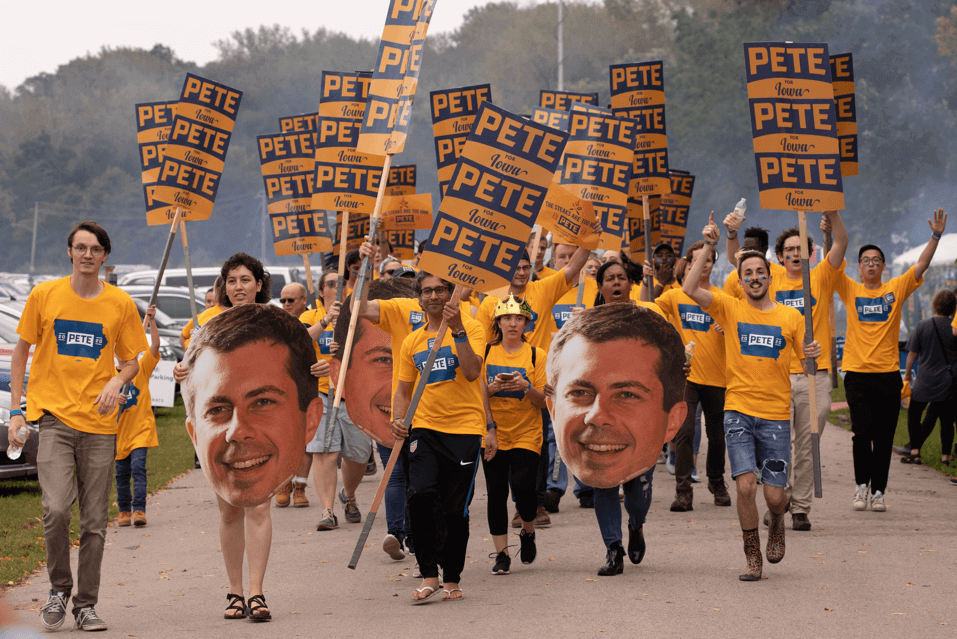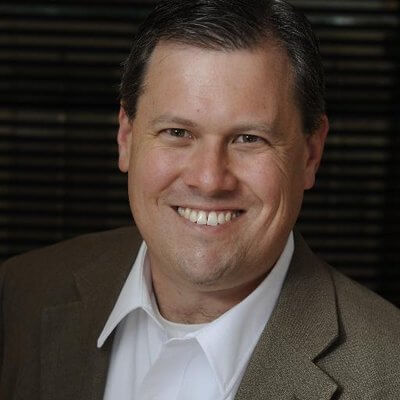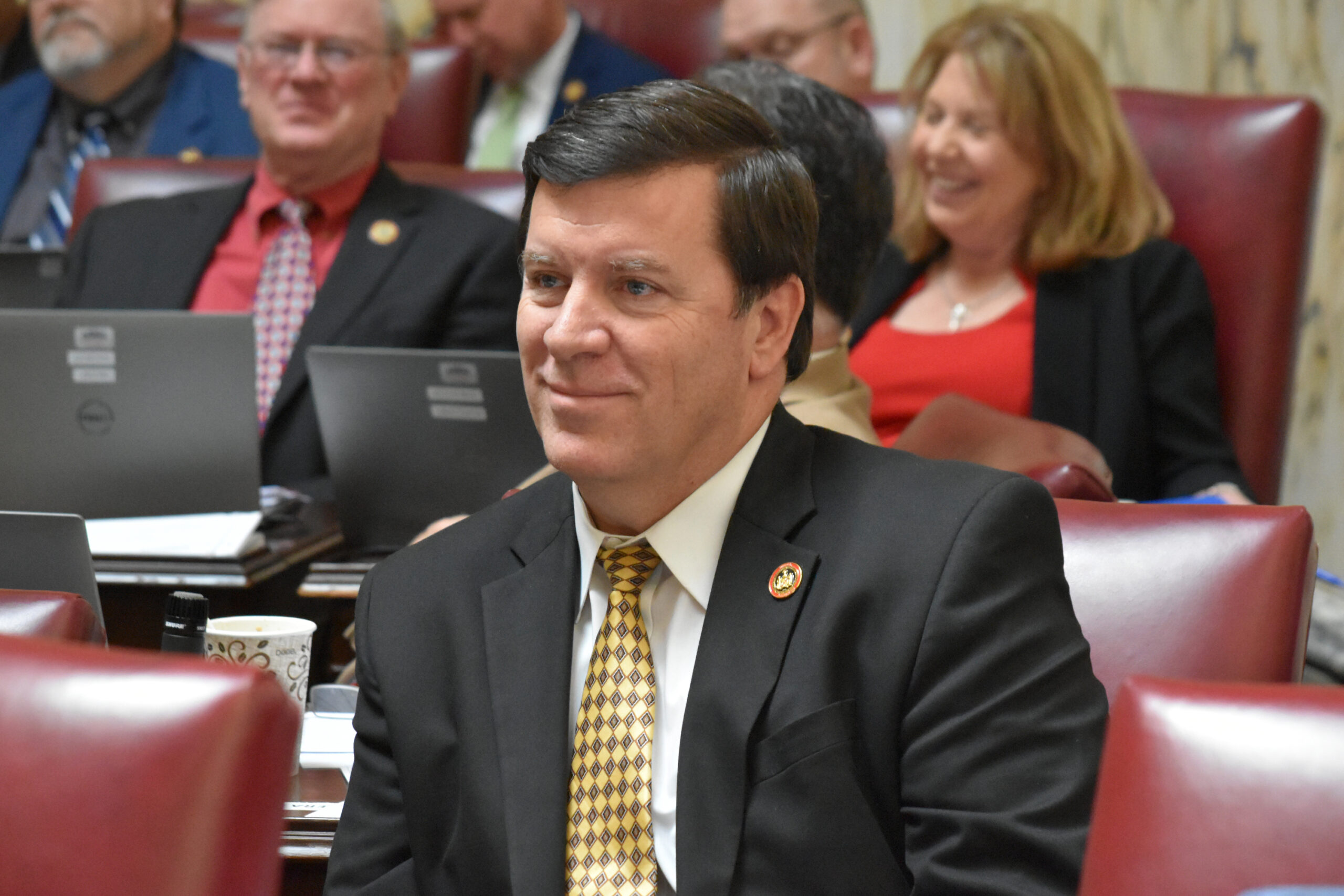
The Moment Mayor Pete Caught My Attention, and Why He’s Worthy of Yours, Too
It was June 27, 2019. The spotlights streamed down on 10 presidential candidates standing on the Arsht Center stage in Miami. NBC had brought in an A-List group of moderators and, as the evening began, it was clear they came prepared to lead the candidates through back and forth discourse on the issues one would reasonably expect: health care, the economy, and immigration.
That was how it went for nearly an hour. Then, Rachel Maddow directed a question specifically to Mayor Pete Buttigieg. It was a custom-crafted zinger of the sort that haunts and keeps elected officials up at night. The kind that focuses everyone in the room and draws a bead of sweat even from those who didn’t have to answer. It was the kind of question designed to hold someone accountable for something unpleasant.
How Campaigns Reveal Character
Political campaigns reveal character in two fundamental ways. First, in Presentation: the stories candidates tell about themselves and their platforms. Second, in Reaction: how candidates respond to unanticipated circumstances and things over which they have no control. Most do a pretty good job at the former. It’s the latter that separates the good from the great.
Before that debate, I was only marginally aware of Pete Buttigieg. But what I knew seemed solid. There was the resume, including Harvard, the Rhodes Scholarship and time at Oxford. There was the meritorious service in the U.S. Naval Reserve. Productive experience in the private sector. And there was the mayoral service. (Slight digression: Not only does mayoral service offer legitimate executive experience, but I’d argue, it’s an even more immediately-accountable situation than serving as President. Most mayors are accessible to their constituents almost all the time. Mayors don’t get to seclude themselves in the White House. They’re in line at the grocery store, at the next table at the local watering hole, cutting a ribbon at the town center.)

Gaithersburg Mayor Jud Ashman
And then there was Pete’s message and delivery — unifying, remarkably articulate. Even those of us in the political class, for whom oratory is a stock-in-trade, regard Mayor Pete’s skill as extraordinary.
So, when Rachel Maddow posed the question, I was generally inclined to like Mayor Pete – and I would’ve given him solid high scores on how he’d presented himself.
Then Came the Question
Maddow spoke of festering racial tensions spurred by a recent officer-involved shooting in Buttigieg’s jurisdiction of South Bend, Indiana. She pointed out that, although African Americans comprise 26 percent of the city’s population, only 6 percent of South Bend’s police force at the time was black
“Why has that not improved over your two terms as Mayor?” Maddow asked.
“Because I couldn’t get it done,” Mayor Pete began, “my community is in anguish right now… A black man, Eric Logan, [was] killed by a white officer. I’m not allowed to take sides until the investigation comes back. The officer said he was attacked with a knife, but he didn’t have his body camera on. It’s a mess. And we’re hurting. And I can walk you through all of the things that we have done as a community – all of the steps that we took, from bias training to de-escalation – but it didn’t save the life of Eric Logan. And when I look into his mother’s eyes, I have to face the fact that nothing that I say will bring him back.
“This is an issue that is facing our community and so many communities around the country. And, until we move policing out from the shadow of systemic racism, whatever this particular issue teaches us, we will be left with the bigger problem: the fact that there’s a wall of mistrust, put up one racist act at a time; not just from what’s happened in the past, but from what’s happening in the country in the present. It threatens the well-being of every community. And I am determined to bring about a day when a white person driving a vehicle and a black person driving a vehicle, when they see a police officer approaching, feels the exact same thing; a feeling not of fear, but of safety. I am determined to bring that day about.” (Crowd applauds)
Character Revealed in Six Words
I had to rewind and watch it again. “Because I couldn’t get it done.” Did he just say that? Now he had my attention.
This was probably not Pete Buttigieg’s favorite moment of 2019, but I found it remarkable. I can’t recall seeing anything like it in such a high-stakes presidential debate in recent history. Why? Because Mayor Pete accepted accountability.
There it was. On this debate stage, during the course of several hours of candidate-after-candidate pivoting and launching into poll-tested talking points all specifically designed to channel those bright, streaming stage lights and reflect themselves in the most perfect possible radiance – and after decades of debates just like it: Pete Buttigieg was different.
He didn’t cast blame. South Bend has a police chief, a human resources office, a strong City Council and other layers of oversight of their police department. We heard none of that from Mayor Pete.
He didn’t point to some other jurisdiction, or someone from a different political party and say ‘well, what about them, and how they handled (insert similar situation) poorly?’
He didn’t pivot into a discourse of programs that he’s brought about to help turn South Bend around, although there’s plenty to point to on that score.
And he didn’t make excuses.
Mayor Pete acknowledged an uncomfortable truth. He took responsibility. The buck stopped there. That’s what leadership looks like.
Leaders embrace accountability, even when things don’t work out the way you’d want them to. They reflect. They listen. They learn. And they become better leaders.
(In fact, only a couple weeks later Pete rolled out his “Douglass Plan,” a set of initiatives meant to dismantle historically racist structures and systems, particularly in the areas of health, education and criminal justice. No other candidate has put together anything as thoughtful or comprehensive on the subject.)
That’s the moment when Mayor Pete caught my attention, and everything I’ve seen since has served to underscore these truths about his character.
My fellow Marylanders, we have the opportunity to support a rare and exceptional candidate in Pete Buttigieg. I hope you’ll give him a good look and join me in supporting him in the Democratic Primary here in April, and then for President in November.
— JUD ASHMAN
The writer is the mayor of Gaithersburg. Note: This piece reflects Ashman’s personal viewpoint and is not an official position of the City of Gaithersburg.




 Creative Commons Attribution
Creative Commons Attribution